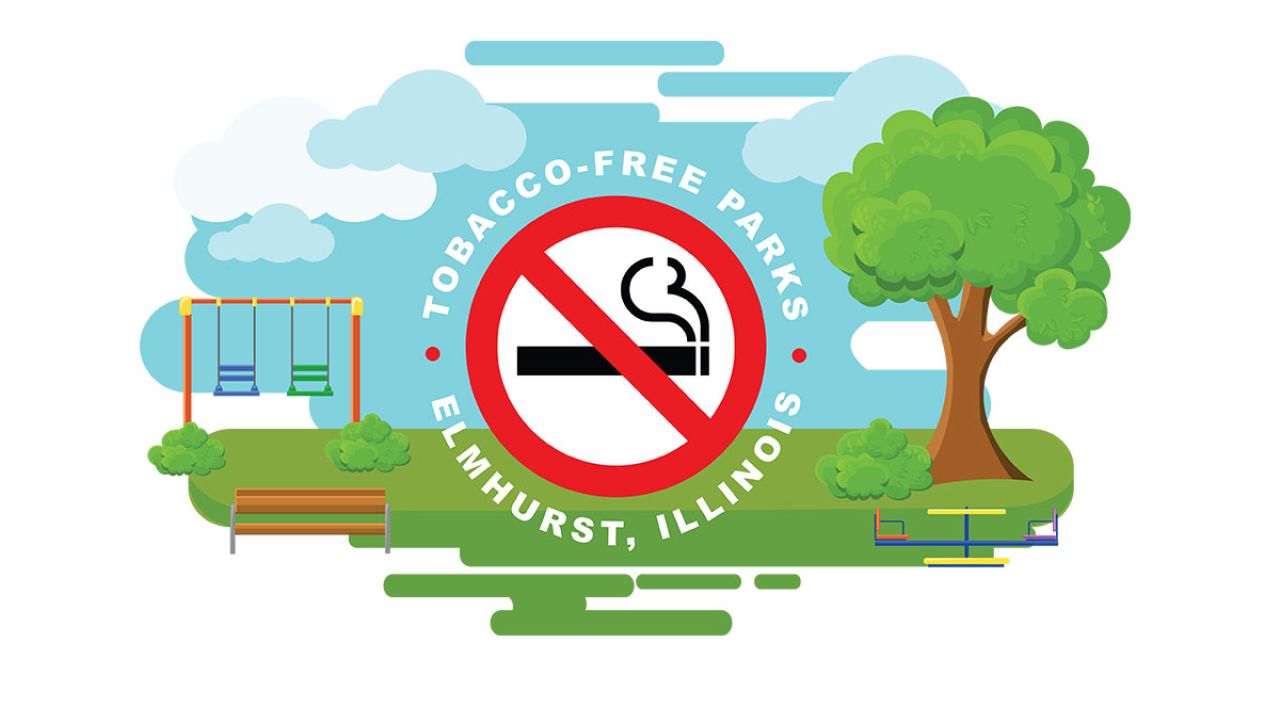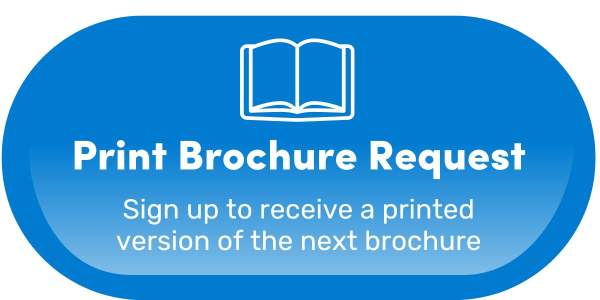The Elmhurst Park District will institute a District-wide tobacco ban on November 16, 2017 in conjunction with the American Cancer Society’s Great American Smoke-Out, an event that encourages people to quit smoking.
The ban was approved at the August 28 board meeting with a unanimous vote. Sugar Creek Golf Course and paid rentals at Wilder Mansion are exempt from the ban. However, Elmhurst Park District and partner events held on Mansion grounds, such as the Egg Hunt, Art in Wilder Park, and Tree Lighting, will be covered under the ban.
The approved ban comes after discussion at the March 13, 2017 Park Board meeting, where Board Members directed staff to draft an amendment to the District’s Park and Facility Use Ordinance and to create an implementation and enforcement plan for a potential ban.
Benefits of a Ban
• Providing a safe place to play – Every child deserves to play in a park without the effects of tobacco use.
• Positive role models – By instituting a District-wide ban, the Elmhurst Park District is promoting a healthy lifestyle and encourages youth not to start smoking.
• Fresher air – A District-wide tobacco ban provides better respiratory health for all visitors to park and recreation facilities. Second hand smoke causes early 3,000 deaths from lung cancer and 46,000 deaths from heart disease every year in the US according to the CDC. Even in outdoor areas, the levels of second hand smoke can be equal to amounts found inside where smoking is allowed according to a Stanford University study.
• Reducing litter in parks – Cleaner parks contribute to a high quality recreation experience because they are free of cigarette butts. Tobacco product litter comprises up to 36% of all visible litter with estimated removal costs ranging from $3 to $16 million on a national level according to a study published in Tobacco Control.
• Reducing the risk of fire hazards – According to the Clean Virginia Waterways Project and Ocean Conservancy, annual human and property costs of fires caused by careless smoking total about $6 billion nationally.
• Awareness – The ban brings more public awareness about the dangers of tobacco use and second hand smoke exposure.
While smoking has declined in the United States, from 20.9% of adults in 2005 to about 15.1% of adults in 2015, cigarette smoking is still the leading cause of preventable disease and death in the United States, accounting for more than 480,000 deaths every year, or 1 of every 5 deaths according to the Centers for Disease Control and Prevention.
Under the new ordinance, tobacco is defined as any lighted or unlighted cigarette, including but not limited to clove, bidis, kreteks, electronic or e-cigarettes, cigars, cigarillos, pipes, hookah products, and any other smoking products; any smokeless, spit or spitless, dissolvable or inhaled tobacco products, including but not limited to dip, chew, snuff, or snus in any form; and all nicotine delivery devices that are not FDA-approved as cessation products. Violators may be fined $100-$250.
According to a poll conducted by the National Recreation and Park Association in 2016, 87% of parents and 86% of college students support policies that prohibit the use of tobacco products are park and recreation facilities. Locally, many parents have spoken out in support of the District’s decision to ban tobacco products.
The Ugly Truth About Nicotine
• Tobacco smoke contains more than 7,000 chemicals and compounds, hundreds of which are toxic. Sixty nine of those are known to cause cancer, according to the Surgeon General.
• The EPA categorizes second hand smoke as a known cancer-causing chemical in the same category as radon and asbestos.
• The Surgeon General has concluded there is no risk-free level of exposure to second hand smoke.
• The Surgeon General has concluded that an e-cigarette aerosol can contain harmful and potentially harmful substances, including nicotine.
For additional resources related to smoking cessation, please visit cancer.org.



